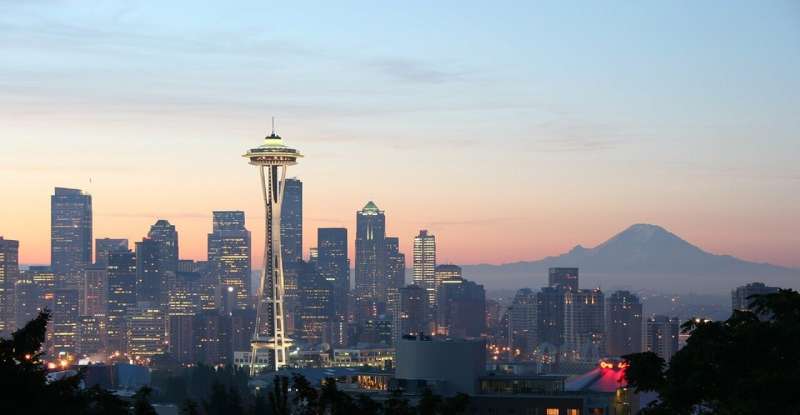Prolonged poor air quality in Washington hits highest mark in past decade

Rain and winds in the Seattle area are a welcome relief as they pushed out wildfire smoke that has clouded the air for weeks on end.
When Seattle recorded the world's worst air quality this week, Washington reached another grim milestone as the duration of exposure to poor air quality hit a 10-year peak.
For the first time in at least a decade, the average number of days with moderate or worse air quality in Washington inched closer to a full month, according to data from the state Department of Ecology.
In Washington, the wildfire season typically runs from June to September and particularly affects the region east of the Cascades.
But this year, for the first time, a significant wildfire smoke event has extended into October in western Washington, where the regional climate is milder and wetter, according to Susan Woodward, spokesperson for the Ecology Department.
The last time active wildfire smoke concerns extended into the fall was in 2012, though it remained east of the Cascades in drier, hotter parts of central and eastern Washington, particularly the Wenatchee area.
While other sources of air pollution such as vehicular exhaust fumes and industrial pollution, largely in urban areas, may commonly cause a moderate reading on the air quality index, several days in the moderate range this summer were affected by wildfire smoke, Woodward said.
On average, between 2016 and 2020, Washington residents were exposed to 34 days of smoky air annually, compared to 22 days from 2009 to 2014, according to a 2021 analysis of federal satellite imagery of smoke waves by NPR's California Newsroom and Stanford University's Environmental Change and Human Outcomes Lab.
The greatest exposure to hazardous air was recorded in 2015, when Washington wildfires, the worst in state history, were declared a federal emergency.
Though the state has recorded a prolonged exposure to poor air quality this year due to wildfire smoke, the intensity of the exposure is not as hazardous as it has been in previous years, Woodward pointed out.
"By comparison, there have been no hazardous days in 2022," Woodward said.
A growing body of research on wildfire smoke and its impact on human health shows even short-term exposure has adverse effects.
Particle pollution or fine particulate matter, the main component of wildfire smoke, is 10 to 30 times thinner than human hair and can be inhaled deep into lungs and enter the bloodstream.
They pose the greatest threat to public health, according to the U.S. Environmental Protection Agency.
Exposure can range from relatively minor effects, like an eye or respiratory tract irritation, to more serious health effects such as exacerbation of asthma, heart failure and premature death, the EPA said. Emerging research has further found that exposure to wildfire smoke is also linked to cognitive decline and pregnancy risks.
New research shows wildfire smoke now accounts for up to half of all PM2.5 exposure on the West Coast, compared to less than 20% a decade ago.
In fact, the increasingly routine exposure to wildfire smoke is erasing decades of air quality gains and exposing millions of Americans to extreme pollution levels, say researchers at Stanford University.
The state Ecology Department is cautious to agree.
"Washington has seen significant reductions over decades in all air pollutants we are required to monitor. We don't think these achievements have been erased due to particulate pollution [PM2.5] from this season of wildfire smoke," said Woodward, adding that the growing exposure to wildfire smoke is still concerning.
"Its presence is a clear indication of the need for climate action and strategies that improve year-round air quality and reduce the burden on public health."
(c)2022 The Seattle Times
Distributed by Tribune Content Agency, LLC.




















